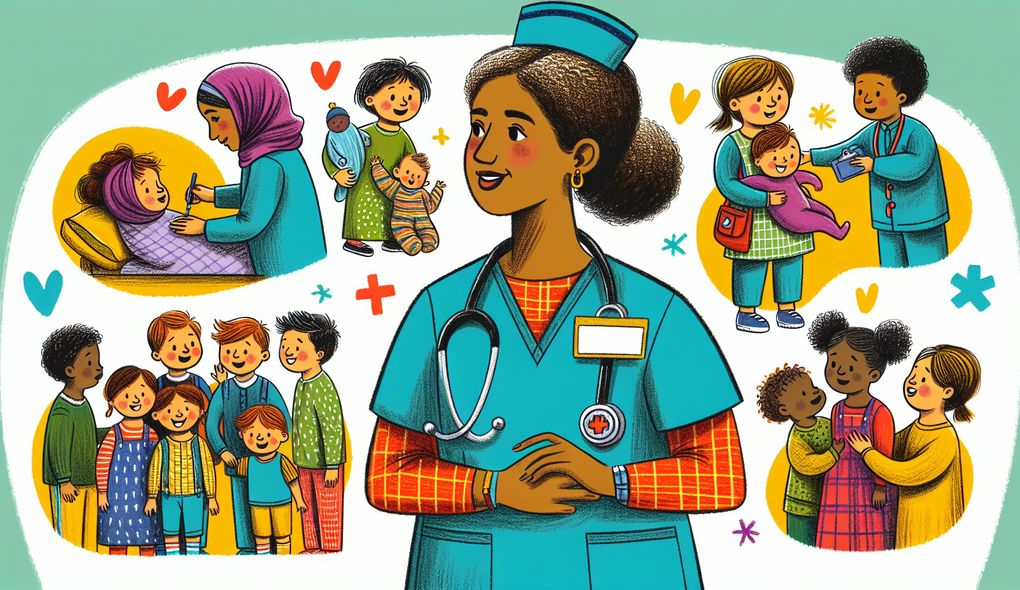How do you ensure a smooth transition of care when a pediatric patient is discharged?
SENIOR LEVEL

Sample answer to the question:
When a pediatric patient is discharged, I ensure a smooth transition of care by collaborating with the healthcare team and the patient's family. I make sure to communicate all necessary information about the patient's condition, medications, treatments, and follow-up appointments. Additionally, I provide education to the family on how to care for the child at home, including proper medication administration and any necessary lifestyle modifications. I also make myself available for any questions or concerns that may arise after discharge.
Here is a more solid answer:
Ensuring a smooth transition of care when a pediatric patient is discharged requires a comprehensive approach. Firstly, I collaborate closely with the healthcare team to gather all relevant information about the patient's condition, treatment plan, and discharge instructions. I then communicate this information clearly and effectively to the patient's family, using language that is understandable to them. Additionally, I provide thorough education on medication administration, wound care, and any necessary lifestyle modifications. I ensure that the family has all the necessary resources, such as contact numbers for healthcare providers and information about follow-up appointments. Throughout the process, I address any questions or concerns, and ensure the family feels supported and confident in their ability to care for the child at home.
Why is this a more solid answer?
The solid answer expands upon the basic answer by providing more specific details and examples of how the candidate ensures a smooth transition of care. It demonstrates their ability to collaborate with the healthcare team, communicate effectively with families, provide comprehensive education, and address any concerns or questions. However, it could still be improved with additional examples of how the candidate has successfully implemented these strategies in their previous experience.
An example of a exceptional answer:
To ensure a smooth transition of care when a pediatric patient is discharged, I take a proactive and patient-centered approach. I prioritize establishing a strong rapport with the patient and their family from the beginning, building trust and fostering open communication. I involve the family in the care planning process, ensuring they feel empowered and informed. I provide personalized education materials and resources based on the patient's specific needs and condition, taking into account their cultural and linguistic backgrounds. I also utilize healthcare software and electronic health records to streamline information sharing and ensure accuracy. After discharge, I follow up with the family to address any concerns or questions, and make any necessary adjustments to the care plan. Overall, my goal is to ensure that the transition of care is seamless, with the patient and their family feeling confident and supported in managing their health at home.
Why is this an exceptional answer?
The exceptional answer goes above and beyond by highlighting the candidate's patient-centered approach, strong communication and leadership skills, and ability to personalize care based on the patient's needs. It demonstrates their use of technology and electronic health records to improve efficiency and accuracy in information sharing. The answer also emphasizes the candidate's commitment to ongoing support after discharge and their dedication to ensuring a seamless transition of care. The answer could be further improved by providing specific examples of how the candidate has successfully implemented these strategies in their previous experience.
How to prepare for this question:
- Review your experience in pediatric care and ensure you can speak confidently about your clinical skills and experience.
- Think about specific examples where you have demonstrated effective communication and interpersonal skills with children and their families.
- Reflect on situations where you had to make quick and accurate clinical judgments in pediatric care and be prepared to discuss them.
- Familiarize yourself with healthcare software and electronic health records commonly used in pediatric settings.
- Consider examples of how you have handled stressful situations with calm and empathy in your pediatric nursing experience.
- Be prepared to discuss instances where you have effectively collaborated with a team and demonstrated leadership abilities in a pediatric care setting.
What are interviewers evaluating with this question?
- Pediatric care
- Communication and interpersonal skills
- Clinical judgments
- Healthcare software and electronic health records
- Stress management
- Team collaboration and leadership

